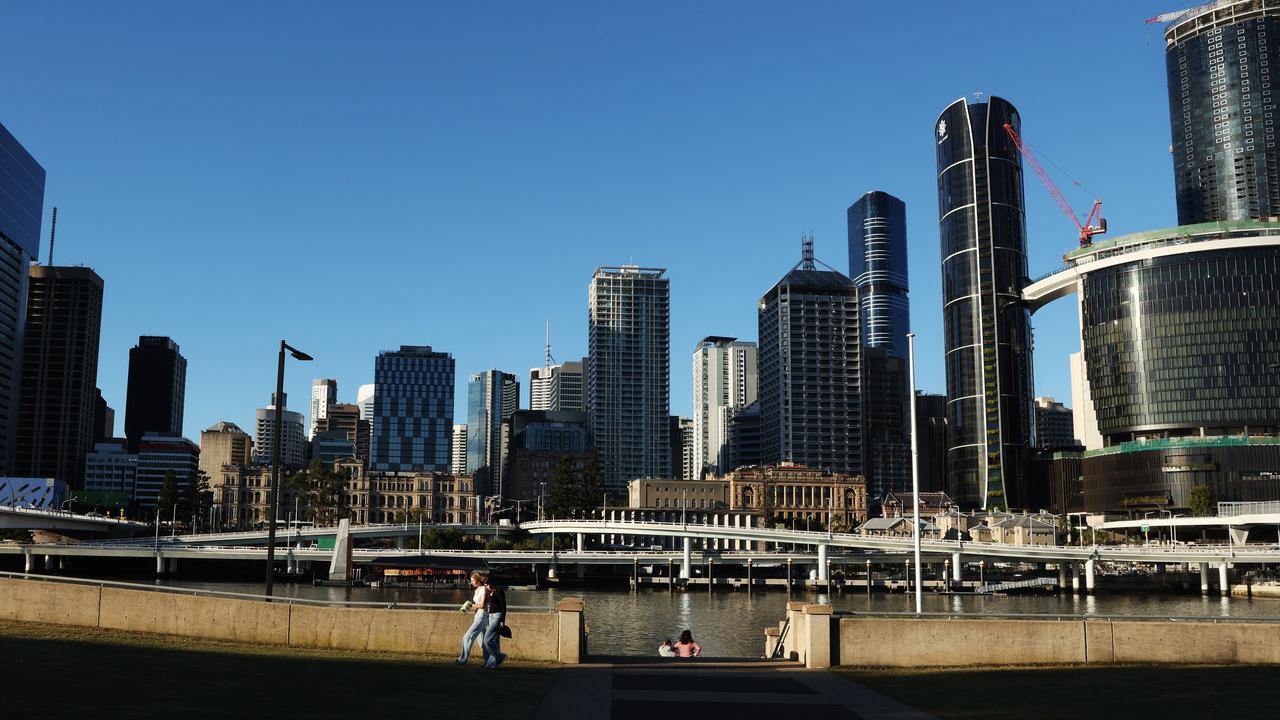As Westpac ends Austrac pain, what’s next for CEO Peter King
A major milestone almost went unnoticed as Peter King says there’s more to be done to get the bank match fit.

Business
Don't miss out on the headlines from Business. Followed categories will be added to My News.
A major milestone almost went unnoticed after Westpac chief executive Peter King delivered a solid first half profit of $3.34bn and threw in all kinds of financial sweeteners to shareholders that had been bracing for a slowdown to come.
The latest numbers represented the end of Westpac’s three years of intensive reform and intervention following the Austrac financial crimes scandal, where thousands of transactions went unchecked.
It was a massive failure in risk and technology that erupted at the end of 2019, sparking a management purge and resulting in a record $1.3bn penalty. The events sent the once-proud Westpac reeling, it was a long way down for the bank that avoided the global financial crisis.
Then as the Covid pandemic hit, the bank entered a painstaking rebuild under Peter King, the “accidental CEO” who had been planning retirement but was drafted back to steer Westpac through one of its toughest moments since the early 1990s.
Monday marked the end of the bank regulator-imposed multi-year reform program. Independent expert Promontory Australia signed off its twelfth and final report to declare Westpac’s approach to culture, governance and accountability has been “materially uplifted”.
This probably doesn’t capture the magnitude of the hundreds of intensive programs King had underway over the past few years in order to make serious structural and cultural change across every part of the bank. While this was happening, Westpac had been cutting more than a thousand jobs in order to bring down its persistently high cost base.
In its final assessment, Promontory said Westpac “is now in a much improved position to identify and address the challenges that lie ahead”.

King tells The Australian that closing the chapter on the risk overhaul is a “big milestone”, but the work doesn’t end there.
“Technology is the big thing that we need to be focused on now,” he says. But the work done to date means Westpac is a “simpler and stronger bank compared to where we were three years ago”.
The final Promontory assessment is now sitting with bank regulator APRA, which will shortly decide on the outcome of the $1bn of additional capital it forced Westpac to put aside while it was being sidelined. The release of the $1bn will mark the official end to Westpac’s punishment.
‘More to do’
King says this allows the bank to look out again. In recent weeks he has outlined a multibillion-dollar tech upgrade to finally untangle its myriad systems and unify the bank onto one platform. Importantly, King is now focusing on winning back customers by fixing Westpac’s lagging satisfaction and net promoter score rankings. He is betting the rebuild of the Westpac app and the fast mortgage approval will give him a bounce. Improved technology will help cut into Westpac’s cost base. One example is more than 90 per cent of mortgages are now processed on the bank’s new digital origination platform.
To get things moving on customer satisfaction, King rolled out a new measure for every bank employee, who will be given their own net promoter scorecard.

With Westpac’s board undergoing its own change including a new chairman, Steven Gregg, King wouldn’t be drawn into discussing his own future, but pointed out the tech change announced in March has “years” to run.
The chief executive says his aim is “driving a customer-focused company that’s going to simplify its technology”.
King’s comments came as his bank became the latest to show surprising resilience in the economy. While the pace of lending growth was slowing, the competition that has been eating away at mortgage profits has been falling away. With slower demand for loans, Westpac is sitting on excess cash. The bank outlined a $1bn boost to its current share buyback and 15c a share special dividend on top of the better-than-expected 75c half year dividend.
As a rule, banks don’t return cash when a hurricane is coming, so this suggests Westpac reckons it’s going to be more of the same for the economy in the near term before a recovery.
King says it’s too early to say if we are past the worst.
“If interest rates stay where they are for a bit longer, that will create a little bit more pain, but it’s really all about unemployment and we haven’t seen any major change yet.” However, he expects unemployment will rise over the coming year as the economy slows.
“At the macro level, the economy is actually very resilient. But at the tail, those people that are doing a tough are really doing it tough – and they’re mainly young and lower income earners.”
Originally published as As Westpac ends Austrac pain, what’s next for CEO Peter King





